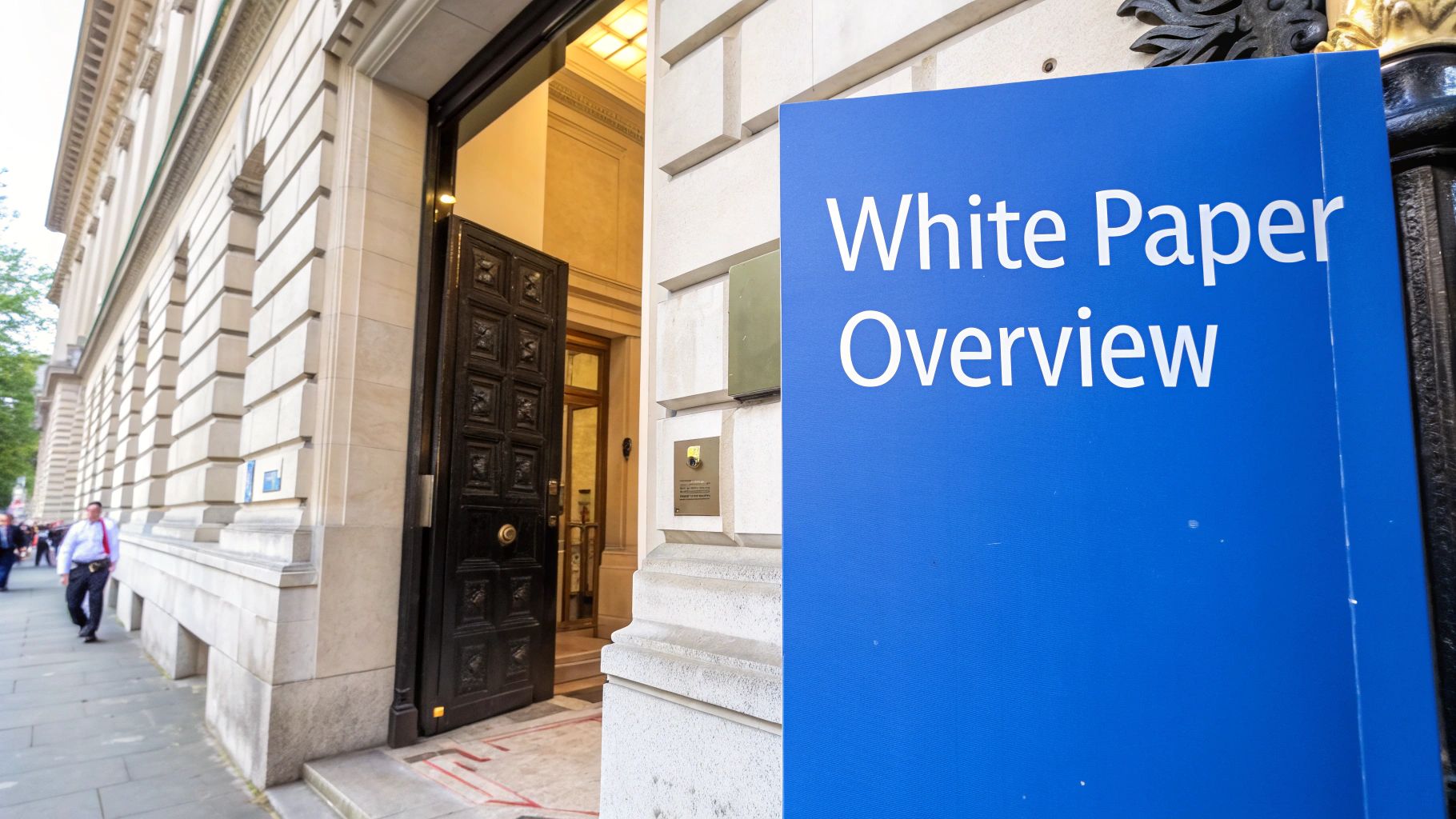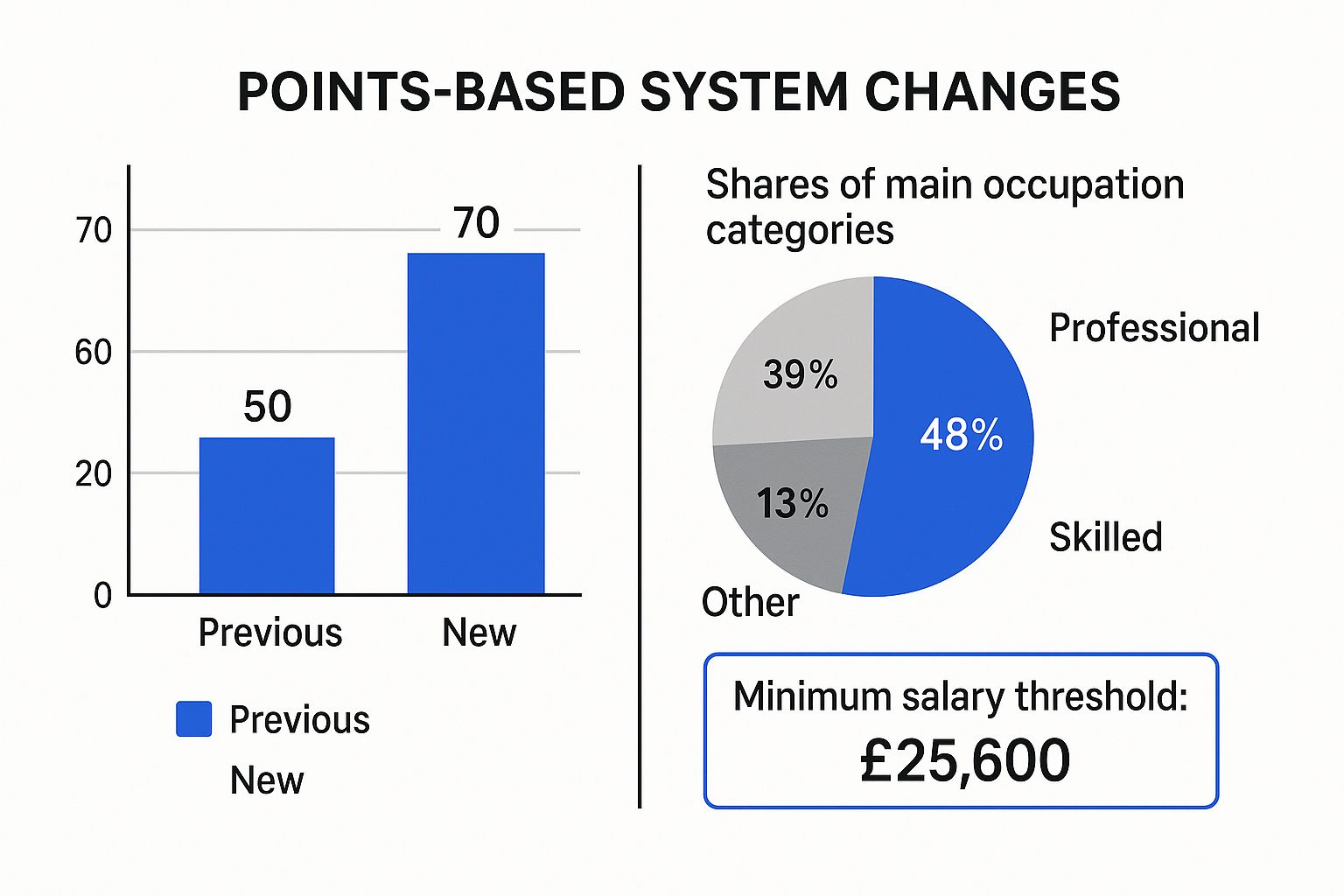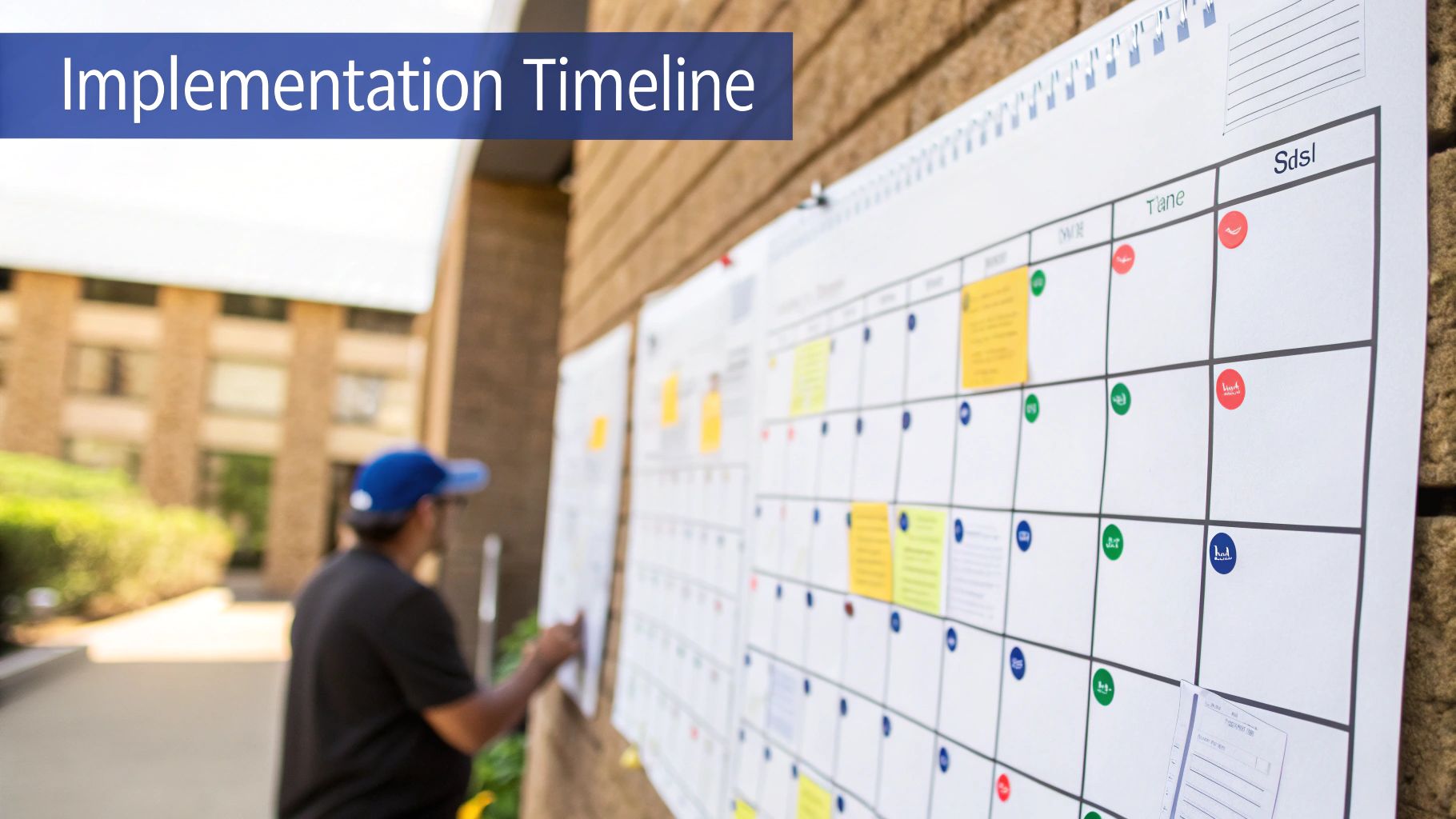UK Immigration White Paper: Key Changes for Nigerians

Understanding Britain’s Immigration Reset

The UK’s immigration system is undergoing a major transformation. The recently published “New UK Immigration White Paper” has caused concern within the Nigerian community. This reset aims to change how the UK manages immigration, with potentially significant implications for Nigerians. Let’s explore the reasons behind this White Paper and why it’s so important.
The Surge in Migration and Its Impact
A key factor driving these changes is the significant increase in immigration to the UK. In the year ending June 2023, over one million people migrated to the UK, a fourfold increase compared to 2019. This rise, largely comprising non-EU nationals and their dependents arriving for work or study, has put a strain on public services such as healthcare and education. The shift from primarily higher-skilled migrants to a growing number of lower-skilled migrants has also raised questions about the economic impact. The government describes this as an unsustainable surge, leading to the push for tighter immigration controls. You can find more detailed statistics here: UK Immigration Statistics.
Balancing Economic Needs and Migration Control
The UK government faces the challenge of attracting skilled workers to fuel economic growth while managing migration numbers to alleviate pressure on public resources. The White Paper seeks to address this by prioritizing “high-skilled” workers and restricting entry for those considered “lower-skilled.” This creates a more competitive and selective environment for Nigerians seeking opportunities in the UK. For those expanding their migration options, professional certifications can be valuable. Consider exploring available Global HR Certification Options.
Why This Matters to Nigerians
This new immigration approach has specific consequences for Nigerians. Our historical connections with the UK and the substantial migration flows in recent years place us at the center of these reforms. Anyone in Nigeria considering a move to the UK should understand the changes outlined in the White Paper. The next section will explore in more detail why Nigeria has become a focus of these new immigration measures.
Nigeria In The Spotlight: Why We’re Priority Targets

The infographic above illustrates key changes to the UK’s Points-Based System. It highlights the increased points threshold, occupation distribution, and minimum salary requirements, all having direct implications for Nigerians hoping to relocate.
The required points have increased from 50 to 70, the minimum salary is set at £25,600, and certain occupations are prioritized. This creates a more competitive environment for Nigerian applicants.
This focus partly stems from Nigeria being a major source of UK immigration. For the year ending June 2023, Nigerian nationals were among the top five non-EU immigrant groups, with approximately 141,000 arrivals. This reflects broader migration trends from countries with historical ties to the UK. The UK government has expressed concern about managing these shifts, influencing the “New UK Immigration White Paper” and its targeted measures. Learn more about this in this article about the rumoured immigration white paper.
Visa Approvals, Overstaying, and Demographic Trends
The UK government’s focus on Nigeria also relates to visa overstaying concerns and the need for tighter immigration controls. The White Paper directly addresses these concerns, proposing stricter enforcement and a more selective approach to visa approvals.
This means Nigerian applicants may experience increased scrutiny and longer processing times. The higher skill and salary thresholds disproportionately impact Nigerian professionals.
Implications for Current and Future Applications
These changes affect both pending and future applications from Nigeria. For those already in the UK, the White Paper’s emphasis on integration and stricter settlement requirements could pose new challenges.
This highlights the need for Nigerians to fully grasp these changes and meticulously prepare their applications. For businesses navigating the UK market, understanding the costs associated with online visibility is crucial. More information on SEO costs in the UK can be helpful in this context.
The following table summarizes the key changes and their impact on Nigerian applicants:
The table below outlines the specific changes to different visa categories that will most impact Nigerian applicants.
| Visa Category | Current Policy | New Policy Under White Paper | Impact on Nigerian Applicants |
|---|---|---|---|
| Skilled Worker | 50 points required | 70 points required, with emphasis on specific in-demand occupations and a minimum salary of £25,600 | Increased difficulty in qualifying, especially for those in less in-demand roles or with salaries below the threshold. |
| Student | Tier 4 visa system | Potential changes to eligibility requirements and post-study work options | May face stricter criteria for obtaining a student visa and fewer opportunities to stay in the UK after graduation. |
| Family | Various routes for spouses, partners, children, and other family members | Potential tightening of rules around family reunification | Could make it more difficult for Nigerians to bring family members to the UK. |
| Business | Several categories for entrepreneurs, investors, and innovators | Likely changes to investment thresholds and other requirements | May face higher barriers to entry for establishing or expanding businesses in the UK. |
This table provides a quick overview of the potential challenges Nigerian applicants may face under the new policies. The following sections will delve deeper into how these changes impact specific visa categories and offer strategies for navigating this complex new system.
Career Pathways: Navigating The New UK Work Visa Landscape

The “New UK Immigration White Paper” has significantly changed the work visa landscape for Nigerian professionals. This section explains these key changes and offers guidance for those seeking opportunities in the UK. Understanding the current landscape is the first step in successfully adapting your career plans.
Higher Skill Thresholds And Salary Requirements
The White Paper has raised the requirements for skilled workers. The minimum skill level now needed is equivalent to a Bachelor’s degree (RQF Level 6). This means some roles previously open to Nigerian professionals may no longer be accessible.
In addition to the increased skill level, salary thresholds have also been raised, presenting a further hurdle. Therefore, it’s crucial for Nigerian professionals to pursue higher qualifications and develop specialized skills in in-demand fields.
Shifting Demand And The Temporary Shortage List
The UK’s skills needs are constantly changing. While demand may have decreased in some sectors, others remain open to international talent. The Temporary Shortage List (TSL) identifies occupations where there are persistent shortages.
For example, certain roles in healthcare and technology may still offer opportunities for Nigerian professionals. Focusing on these high-demand areas can significantly improve your chances of securing a UK work visa. For more information on applying for international jobs, check out this helpful resource: How to apply for jobs abroad.
Sponsorship And The Importance Of Workforce Strategies
Gaining sponsorship from a UK employer is now more vital than ever. The White Paper emphasizes the employer’s responsibility to develop domestic talent. This means UK employers must demonstrate a genuine commitment to training and upskilling their local workforce before recruiting internationally.
As a result, Nigerian professionals need to showcase specific skills and experience that address genuine skill gaps in the UK labor market. The UK Government’s immigration White Paper, published in May 2025, outlines reforms intended to manage net migration, which reached 672,000 in the year ending June 2023. The White Paper aims to promote economic growth while ensuring stability in public services and housing.
Non-EU nationals comprised the majority of immigration (968,000 arrivals in the year ending June 2023), primarily driven by work (33%), study (39%), and humanitarian reasons (9%). Learn more about current UK immigration trends.
Alternative Routes And Professional Development
While the Skilled Worker visa remains a common pathway, exploring alternative options is highly recommended. The Global Talent visa or Innovator visa may be suitable routes for highly skilled Nigerian professionals.
Focusing on continuous professional development and obtaining internationally recognized qualifications will further strengthen your application. This proactive approach helps ensure you remain competitive in the constantly evolving global job market.
Adapting Your Career Strategy
The UK immigration landscape presents undeniable challenges. However, a thorough understanding of these changes will empower you to adjust your career strategy accordingly.
By targeting in-demand skills, pursuing higher education, and exploring alternative visa routes, you can significantly increase your chances of achieving your UK career goals. Thorough research and preparation are essential for navigating this complex landscape and maximizing your prospects for success.
Education Dreams: What Nigerian Students Must Know
The “New UK Immigration White Paper” introduces significant changes to the UK student visa system, directly impacting Nigerian students. This section explains these changes and how they affect dependant policies, financial prerequisites, and post-study work rights. We’ll also explore how these shifts may influence your decision to study in the UK.
Dependant Policies and Financial Implications
One of the most significant changes is the increased difficulty in bringing dependants to the UK. The White Paper introduces stricter financial requirements for students wanting their families to join them. This presents a challenge for many Nigerian students, who often rely on family support.
The rising cost of living in the UK adds another layer of financial strain. Careful planning and budgeting are now more critical than ever for a successful educational journey.
The stricter financial requirements demand students demonstrate sufficient funds to support themselves and any dependants. This includes covering accommodation, healthcare, and daily living costs. These additional financial hurdles mean prospective students must carefully assess their resources and ensure they meet these increased demands.
Post-Study Work Rights and the Graduate Route
The Graduate route, which allows international students to stay and work in the UK after graduation, has been shortened from two years to 18 months. This reduction significantly impacts Nigerian graduates seeking UK work experience and potentially long-term employment.
This shorter post-study work period makes it more competitive for Nigerian graduates to establish themselves in the UK job market. They have less time to secure a sponsored work visa after graduation, requiring a proactive and strategic job search. You might be interested in: UK Visa Requirements for Nigerian Citizens.
Navigating the New System and Exploring Alternatives
Despite these changes, UK education can still be a valuable investment. However, Nigerian students must be more strategic in their approach. Choosing the right course and university is paramount.
Focusing on degrees with high employability rates, especially in fields like technology, engineering, and healthcare, can improve the chances of securing a sponsored job after graduation. Thorough research into universities and their sponsorship opportunities will also provide valuable insights.
Genuine Student Requirements and Demonstrating Intent to Return
The UK government has implemented stricter measures to ensure international students genuinely pursue education. Students must convincingly demonstrate their commitment to their studies and their intent to return to Nigeria after graduation.
A well-crafted personal statement and a strong academic record are essential. Students must articulate their reasons for choosing a particular course and university, highlighting their academic goals and how they align with their future career aspirations in Nigeria. Demonstrating genuine intent plays a key role in visa approvals.
Assessing the Investment and Considering Alternative Destinations
While the UK remains a popular destination, it’s essential to carefully evaluate the new limitations. Exploring alternative destinations like Canada or Australia might offer more accessible pathways and better post-study work opportunities.
Considering these alternatives allows for a more flexible approach to international education plans, mitigating the impact of the UK’s restrictive policies. These countries often have programs designed to attract international students, offering streamlined visa processes and post-graduation work permits.
Family Matters: Reunification Under Tighter Rules

The “New UK Immigration White Paper” has significant implications for Nigerian families hoping to reunite in the UK. This section explores the new, stricter requirements, including increased income thresholds, stringent English language tests, and longer qualifying periods. We’ll also examine the consequences of these changes for Nigerian families.
Higher Income Thresholds: A Major Hurdle
One of the most substantial changes is the increased minimum income required to sponsor family members. This presents a considerable challenge for many Nigerians hoping to bring their spouses, children, or elderly parents to the UK. For instance, a family sponsoring a spouse might need to demonstrate a substantially higher combined income than previously required.
This financial requirement becomes even more challenging for families with dependent children. This financial barrier has raised concerns, with the potential to separate families across international borders. It’s crucial for Nigerians to thoroughly assess their financial situation and investigate all available options for meeting these new income thresholds.
English Language Proficiency: A New Standard
The White Paper introduces stricter English language requirements for family members. These apply to adult dependents of both workers and students. The initial requirement is set at A1 level (Basic User). However, to extend their visas, they will need to achieve A2, and for settlement (ILR – Indefinite Leave to Remain), the B2 level (Independent User) is necessary.
This added requirement could mean additional time and financial resources devoted to language training and examinations. This can add further strain on Nigerian families. Prospective applicants need to be fully aware of these requirements and incorporate them into their plans.
Extended Qualifying Periods: Impact on Long-Term Plans
In addition to the income and language requirements, the qualifying period for settlement (ILR) has been changed. While Skilled Worker visa holders previously could apply for settlement after five years, this has been extended to ten years.
The White Paper does introduce the concept of “earned settlement,” which may offer a way to potentially reduce this period. This could be achieved through demonstrable contributions to the UK’s economy and society. However, the specific details are still under consultation. This leaves many Nigerians uncertain about their long-term prospects in the UK.
Navigating the New Landscape of Family Reunification
These changes create a more complex process for family reunification. Nigerians planning to bring loved ones to the UK need to be prepared for a longer and potentially more expensive journey. Meticulous gathering of all necessary documents is essential, ensuring they comply with the new standards.
For those already in the process of sponsoring family members, understanding the transitional arrangements is crucial. Seeking guidance from immigration specialists can provide clarity and support. Despite these new challenges, alternative pathways and strategies can help Nigerian families navigate these tighter rules and ultimately achieve their reunification goals. Staying informed and exploring all available support options is vital.
Application Success: Strategies That Work for Nigerians
The “New UK Immigration White Paper” presents significant challenges for Nigerians hoping to relocate to the UK. However, with the right approach, a successful application is still within reach. This section offers practical advice, gathered from immigration advisors and successful applicants, to bolster your application in this more stringent environment. For more helpful tips, review our guide on common relocation mistakes.
Compelling Financial Documentation: Addressing Specific Concerns
Financial stability is paramount for UK visa applications. The White Paper’s stricter financial requirements demand meticulous documentation. Nigerian applicants must provide clear, comprehensive evidence of their financial resources, proactively addressing potential questions about the source of funds and demonstrating their ability to support themselves while in the UK.
This might involve submitting bank statements covering an extended period, recent payslips, tax returns, and even proof of property ownership. Any discrepancies or gaps in financial records should be explained upfront and with supporting evidence. Detailed documentation enhances transparency and reinforces the credibility of your application.
Persuasive Personal Statements: Demonstrating Genuine Intentions
Your personal statement is your chance to convey your genuine reasons for wanting to relocate to the UK. Clearly articulate your motivations for choosing the UK, highlighting how your plans align with the visa requirements. For instance, students should emphasize their academic ambitions and explain how their UK education will benefit their careers in Nigeria after graduation.
Similarly, skilled workers need to clearly demonstrate how their skills meet specific needs within the UK labor market. This could involve showcasing specialized expertise not readily available in the UK workforce or outlining a long-term career plan that aligns with the UK’s economic strategies. A compelling narrative that showcases your sincere interest in contributing to the UK significantly strengthens your application.
Effective Preparation for Credibility Interviews
Credibility interviews are becoming increasingly prevalent. These interviews aim to assess the authenticity of your application and the genuineness of your stated intentions. Prepare diligently by reviewing all submitted documents and practicing your responses to likely questions.
Be ready to answer specific questions about the source of your funds, your plans after completing your studies, or any family connections you may have in the UK. Thorough preparation is essential for a positive outcome. A confident and well-rehearsed presentation will project credibility to immigration officials.
To understand more about successful visa applications, let’s examine some key factors:
Introducing a table summarizing key factors influencing successful UK visa applications from Nigeria under the new White Paper regulations, this table provides valuable insights into navigating the application process effectively.
| Success Factor | Why It Matters | How to Demonstrate | Common Mistakes |
|---|---|---|---|
| Strong Financial Documentation | Shows you can support yourself in the UK | Bank statements, payslips, tax returns, property ownership proof | Insufficient documentation, unexplained gaps in financial records |
| Compelling Personal Statement | Demonstrates genuine intentions and alignment with visa requirements | Clear articulation of reasons for choosing the UK, future plans, and contributions | Vague statements, lack of specific details, inconsistencies with other documents |
| Thorough Interview Preparation | Ensures confident and credible responses | Review submitted documents, practice answering potential questions | Lack of preparation, inconsistent answers, inability to explain discrepancies |
This table highlights the crucial elements for a successful UK visa application. By focusing on these areas and avoiding common mistakes, Nigerian applicants can significantly improve their chances of a positive outcome.
Addressing Common Rejection Reasons and Exploring Alternatives
Understanding common reasons for rejection is crucial for Nigerian applicants. Insufficient financial documentation, vague personal statements, and discrepancies between stated information and supporting documents are frequent causes of rejection. Proactively identifying and addressing these potential weaknesses can significantly reduce your risk.
Even with a strong application, approval isn’t guaranteed. Exploring alternative pathways, such as other visa categories or considering countries with different immigration policies, is a prudent strategy. Having backup options strengthens your overall migration plan.
Legal Support and Compliance Essentials
Navigating the complexities of UK immigration law can be daunting. Seeking professional guidance from a qualified immigration advisor can prove invaluable. They can assist with document preparation, address specific concerns, and help you navigate the legal intricacies of the application process.
Once in the UK, adhering to your visa conditions is essential. This includes respecting any working restrictions, promptly reporting changes in circumstances, and renewing your visa on time. Understanding your obligations and maintaining consistent compliance protects your immigration status and future prospects in the UK.
Beyond the UK: Expanding Your Migration Options
The “New UK Immigration White Paper” presents significant hurdles for Nigerians hoping to relocate to Britain. However, the world offers a wealth of other opportunities for skilled professionals, students, and families seeking new lives abroad. This section explores alternative migration destinations gaining popularity with Nigerians, examining their unique advantages and offering practical considerations for a successful application.
Canada: A Welcoming Destination for Skilled Professionals
Canada has emerged as a leading alternative for Nigerian professionals. Using a points-based system that prioritizes skills, experience, and education, Canada provides several pathways for skilled migration. Express Entry, the primary system for skilled workers, assesses applicants based on factors like age, education, work experience, and language proficiency.
Furthermore, Canada offers Provincial Nominee Programs (PNPs) targeting in-demand skills within individual provinces. This targeted approach can increase your chances of success if your skills align with a specific province’s needs.
Australia: Opportunities Down Under
Australia also offers exciting opportunities for skilled migrants. Like Canada, Australia uses a points-based system to evaluate applicants. The country’s skilled migration program focuses on occupations with skill shortages, potentially benefiting Nigerians with expertise in these fields.
Australia also has regional initiatives to encourage migration outside major cities. These often have more relaxed eligibility requirements, making them attractive for those who may not qualify for standard skilled migration programs.
Emerging EU Options: Exploring the European Landscape
While the UK has left the European Union, the EU comprises individual countries with distinct immigration programs. Countries like Germany, Ireland, and the Netherlands actively attract skilled professionals from outside the EU, creating potential pathways for Nigerian migrants.
Each country has unique requirements and application processes, so thorough research is essential. Focusing on specific skills and qualifications, these European options provide attractive alternatives to the UK’s increasingly restrictive system.
Practical Considerations for a Global Migration Strategy
Developing a flexible migration strategy is crucial. This means researching alternative destinations, assessing your eligibility for various programs, and having a backup plan.
- Timing your applications: Consider processing times and potential delays.
- Developing in-demand skills: Invest in acquiring globally sought-after skills and qualifications.
- Creating a compelling narrative: Your application materials must convincingly explain your relocation reasons and how you will contribute to your new community.
Pivoting Your Plans: A Smart Approach to Changing Policies
UK immigration policies constantly evolve. While pursuing a UK visa might still be an option, considering other destinations with more welcoming pathways is wise. This diversified approach increases your chances of achieving your international goals.
By understanding the global immigration landscape and developing a flexible strategy, you can confidently pursue opportunities beyond the UK. Ready to explore your global relocation options and connect with a supportive community? Start your journey with JapaChat today!

Leave a Reply